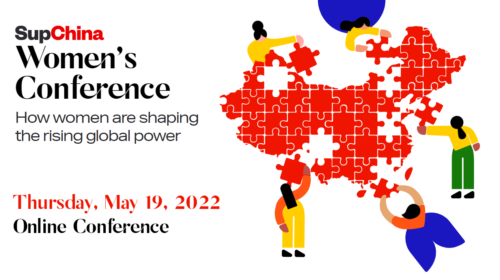Q&A: Silicon Valley’s ‘China whisperer’ Connie Chan on her investment strategy
In this interview, Connie Chan, general partner at Andreessen Horowitz, shares with us how she got to where she is today, her investment strategy, and new innovations in Asia that she’s excited about.

Connie Chan is a general partner at Andreessen Horowitz, a Silicon Valley–based technology venture capital firm with over $7 billion under management. Since joining Andreessen Horowitz in 2011, Connie has worked on the investment team sourcing deals and working closely with startups across the portfolio.
She also spearheaded the firm’s Asia network to bridge the gap between Silicon Valley companies looking to navigate Asia opportunities and companies in Asia seeking to better understand Silicon Valley. Connie’s writing and speaking on the topic of innovation in China has brought renewed attention to it, with her writing on WeChat winning a Sidney Award in 2015.
Chan will speak at The China Project’s Women’s Conference 2021, which is slated to take place virtually on May 12 and 13. Get your tickets here before they sell out!
In this interview, Chan shares with us how she got to where she is today, her investment strategy, and new innovations in Asia that she’s excited about.
The China Project: How long have you been an investor, and what inspired you to pursue this career path?
Connie Chan: I joined the firm in 2011 as a deal partner on the investment team before becoming a general partner in 2018.
When I was younger, I wanted to be a librarian and was incredibly introverted. I grew up not having ever heard of Goldman Sachs or Morgan Stanley. The only banks I knew of were Bank of America and Citibank because they had physical branches near my house! My father was an electrical engineer and my mother was a biochemist — in short, I was never exposed to the world of finance or investing until late in my college years.
I stumbled into finance and investing because it’s what my closest college friends were pursuing. At the time, I didn’t open myself up to exploring other fields (and there were periods I wished I did!), but working as a VC sometimes feels like having a front-row seat to a world-class athlete’s pursuit of the gold medal. It has been a tremendous joy to witness portfolio companies progress from pre-launch companies to becoming market leaders. And when I think about the challenges the founders have to overcome daily while growing at breakneck speeds, I am reminded of how rewarding it is to walk alongside and partner with exceptional entrepreneurs.
The China Project: What are some of Andreessen Horowitz’s recent investments that you’re excited about?
Chan: I’ve been watching edtech, ecommerce, and creator spaces for a while now. I’ve actually written about this idea of “shopatainment” recently as the future of commerce. A recent investment, Whatnot, is an example of a company operating in this space.
The China Project: What traits/qualities are you looking for when identifying and meeting with founders for new potential investments?
Chan: Grit, resilience, vision, leadership, an earned secret — all of these are important. But I’ve also learned that the characteristics of the founder need to match up with what the business needs. Some companies need deeply technical founding teams, some need founders who can cast a great vision and recruit the A-team to make it happen; some companies need founders who act with great speed and aggressiveness, some companies need founders who are patient and won’t give up when looking for product-market fit.
The China Project: How has the COVID-19 pandemic impacted the VC investment landscape in the U.S.?
Chan: In many ways, the pandemic pulled forward trends. For example, ecommerce has been a growing business for years now, but the pandemic helped further normalize and entrench the ecosystem. Everything from delivery platforms to online shopping benefited from the fact that millions of people could not or did not want to go to physical retail stores.
The China Project: You are known for discovering game-changing ideas in Asia, especially China, that have the potential of transferring back to the U.S. Can you tell us one or two Chinese startups that you find interesting right now?
Chan: Video entertainment shopping has become a powerful force in Asia and spawned an ecommerce industry akin to professional movie production — selling via video commerce has quickly evolved into professional-grade programming. So the companies operating in this space are interesting to me.





